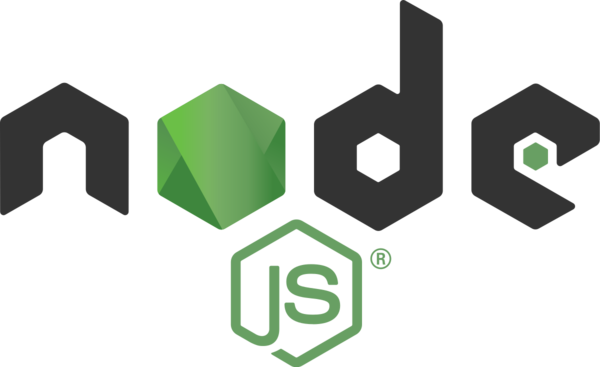Description
Node.js is an open-source, cross-platform JavaScript runtime environment that executes JavaScript code outside of a web browser. It allows developers to run JavaScript on the server-side to build fast and scalable network applications. Node.js uses an event-driven, non-blocking I/O model, which makes it lightweight and efficient. It is often used for building real-time, data-intensive applications, such as chat applications, online games, and real-time data visualization. Node.js is built on top of the V8 JavaScript engine from Google and uses the CommonJS module system. It also has a large and active community, which has created a vast ecosystem of open-source libraries and frameworks for various tasks.
Node.js is based on the JavaScript programming language and is built on the V8 JavaScript engine from Google. It was first released in 2009 by Ryan Dahl and has since gained a significant following among developers. Node.js allows developers to write JavaScript code that can run on the server-side, which was traditionally a domain reserved for languages like Java, Python, or C#.
One of the key features of Node.js is its non-blocking, event-driven I/O model, which makes it lightweight and efficient. This model is based on the observer design pattern and allows the server to handle multiple requests simultaneously without waiting for one request to finish before starting another. This makes Node.js well suited for building real-time, data-intensive applications, such as chat applications, online games, and real-time data visualization.
Node.js also uses the CommonJS module system, which allows developers to organize their code into reusable modules. This makes it easy to split an application's functionality into smaller, manageable pieces. Additionally, Node.js has a large and active community, which has created a vast ecosystem of open-source libraries and frameworks for various tasks such as testing, web development, and data storage. This makes it easy to find pre-existing solutions for common problems and accelerate development.
Node.js also supports various operating systems like Windows, MacOS, and Linux. It is used by some of the most popular websites and applications such as Netflix, Uber, PayPal, and LinkedIn. It has its own package manager, npm (Node Package Manager) that makes it easy for developers to find and use open-source libraries and frameworks.
Node.js is used in a variety of contexts and can be used for both server-side and client-side development. Some common use cases include:
1. Web Application Development: Node.js is often used to build web applications, particularly real-time web applications that require high performance and scalability. It's popular for building chat applications, online games, and real-time data visualization.
2. RESTful APIs: Node.js can be used to build RESTful APIs, which are a way to build web services that allow applications to communicate with each other. Node.js's non-blocking I/O model makes it well suited for building APIs that handle a large number of requests.
3. Backend Services: Node.js can be used to build backend services, such as databases, queues, and other types of data storage. This can be useful for building scalable and efficient systems.
4. Command-line tools: Node.js can be used to build command-line tools, which are useful for automating tasks and running scripts.
5. IoT: Node.js can be used to build Internet of Things (IoT) applications, which are designed to run on small, low-power devices like sensors or Raspberry Pi.
6. Cross-platform desktop application: Node.js can be used to build cross-platform desktop applications using frameworks like Electron.
These are just a few examples of the many ways in which Node.js can be used, and the possibilities are continually expanding as the Node.js ecosystem continues to grow.
Node.js has several advantages that make it a popular choice among developers:
1. JavaScript: Node.js allows developers to use JavaScript on the server-side, which is the same language used for client-side development. This makes it easier for developers to work on both the front-end and back-end of an application, and it can also make it easier to hire developers who are already familiar with JavaScript.
2. Non-blocking I/O: Node.js uses a non-blocking, event-driven I/O model, which makes it lightweight and efficient. This makes it well-suited for building real-time, data-intensive applications, such as chat applications, online games, and real-time data visualization.
3. Scalability: Node.js is designed to be highly scalable, which makes it well suited for building large-scale, high-traffic applications. This scalability is achieved through its non-blocking I/O model, which allows the server to handle multiple requests simultaneously without waiting for one request to finish before starting another.
4. Large Ecosystem: Node.js has a large and active community, which has created a vast ecosystem of open-source libraries and frameworks for various tasks. This makes it easy to find pre-existing solutions for common problems and accelerate development.
5. Package Manager: Node.js has its own package manager, npm (Node Package Manager), that makes it easy for developers to find and use open-source libraries and frameworks.
6. Cross-platform: Node.js can run on various operating systems, like Windows, MacOS, and Linux.
7. Cost-effective: Node.js is an open-source, which is free and it enables the developer to leverage the existing code, thus saving cost and time.
These advantages have contributed to Node.js's popularity and make it a great choice for building a wide variety of applications.
As of my knowledge cutoff in 2021, Node.js is widely used and continues to gain popularity among developers. According to the Node.js Foundation's User Survey from 2020, Node.js is used by 69% of respondents for web application development, and 61% for building RESTful APIs. Node.js is also commonly used in industry, by some of the most popular websites and applications such as Netflix, Uber, PayPal, and LinkedIn.
Node.js has a large and active community, with regular releases and updates. The current version of Node.js is 15.x.x, which was released on October 2021.
Node.js is supported by major cloud providers like Amazon Web Services, Microsoft Azure, and Google Cloud Platform, which makes it easy to deploy and scale Node.js applications.
Overall, Node.js is considered to be a reliable and stable technology that is well-suited for building a wide variety of applications. Its popularity is expected to continue to grow in the coming years, as more and more developers adopt the technology and contribute to the Node.js ecosystem.
Node.js has a bright future and is expected to continue to grow in popularity among developers. There are several factors that contribute to this:
1. The rise of IoT: As the Internet of Things (IoT) becomes more prevalent, the demand for lightweight, efficient technologies that can run on low-power devices will continue to grow. Node.js's non-blocking I/O model makes it well-suited for building IoT applications, and its large ecosystem of libraries and frameworks can also be leveraged to make development easier.
2. Continued growth of JavaScript: As JavaScript continues to be the most widely used programming language for web development, more and more developers are becoming familiar with it. This makes it easier for companies to find developers who are already proficient in JavaScript and can quickly start building applications with Node.js.
3. Cloud Computing: Node.js is supported by major cloud providers like Amazon Web Services, Microsoft Azure, and Google Cloud Platform, which makes it easy to deploy and scale Node.js applications. With the increasing adoption of cloud computing, Node.js is expected to become an even more popular choice for building cloud-based applications.
4. Microservices: Node.js's small footprint and its ability to handle many connections simultaneously make it an ideal choice for building microservices, which are a way of building applications as a set of small, independent services that communicate with each other.
5. Support from large companies: Many large companies are using Node.js in production, such as Netflix, Uber, PayPal, and LinkedIn. This helps to ensure that Node.js is well-supported and will continue to be developed and maintained in the future.
Overall, Node.js is a versatile and efficient technology that is well-suited for a wide variety of applications. Its continued growth in popularity is expected to lead to more innovation and development within the Node.js ecosystem, making it an exciting technology to work with in the future.
The Node.js course is suitable for a wide range of individuals, including:
1. Web developers: If you're a web developer who's looking to expand your skillset, Node.js is a great choice. It allows you to use JavaScript on the server-side, which is the same language used for client-side development, making it easier to work on both the front-end and back-end of an application.
2. Full-stack developers: Node.js is a popular choice for full-stack developers, as it allows you to work on both the front-end and back-end of an application using JavaScript.
3. Beginners: If you're new to programming and looking to start building web applications, Node.js is a great choice. It has a large and active community, and there are many resources available to help you learn.
4. Experienced programmers: If you're an experienced programmer looking to expand your skillset, Node.js is a great choice. It's lightweight and efficient, and it's well-suited for building real-time, data-intensive applications.
5. Backend developers: Node.js is a popular choice for backend developers, as it allows you to build backend logic for web applications with JavaScript.
6. Entrepreneurs: Node.js is a cost-effective option as its open-source, which means you can leverage the existing code and build an MVP product.
7. IT professionals: Node.js is increasingly being used in the industry, and knowing how to work with it can be an asset for IT professionals.
Ultimately, anyone who is interested in learning how to build web applications and wants to expand their skillset can benefit from taking a Node.js course.
There are many job opportunities available for individuals with Node.js skills. Some examples include:
1. Backend Developer: Node.js is a popular choice for building the backend of web applications, so there are many job opportunities for developers who are proficient in Node.js.
2. Full Stack Developer: Node.js is often used in full-stack development, so there are many job opportunities for developers who are proficient in both Node.js and JavaScript.
3. Software Engineer: Node.js is widely used in industry, so there are many job opportunities for software engineers who are proficient in Node.js.
4. DevOps Engineer: Node.js is supported by major cloud providers, so there are many job opportunities for DevOps engineers who are proficient in Node.js and can work with it to deploy and scale applications.
5. Web Developer: Node.js is increasingly being used for building web applications, so there are many job opportunities for web developers who are proficient in Node.js.
6. Site Reliability Engineer: Node.js is a popular choice for building scalable and reliable applications, so there are many job opportunities for Site Reliability Engineers who are proficient in Node.js.
7. Microservices Developer: Node.js's small footprint and its ability to handle many connections simultaneously make it an ideal choice for building microservices, which creates many job opportunities for Node.js developers with Microservices experience.
8. Startups: Node.js is a cost-effective option as its open-source, which means entrepreneurs can leverage the existing code and build an MVP product, and it creates many job opportunities for Node.js developers in startups.
Overall, Node.js is a versatile and efficient technology that is well-suited for a wide variety of applications, and it creates many job opportunities in a wide range of fields.
There are a few prerequisites that can be helpful for individuals who are looking to take a Node.js course:
1. Basic knowledge of JavaScript: Node.js uses JavaScript, so having a basic understanding of the language will make it easier to understand and work with Node.js.
2. Basic understanding of the command line: Node.js applications are typically run from the command line, so having a basic understanding of how to navigate and use the command line will be helpful.
3. Familiarity with web development concepts: Node.js is often used for building web applications, so having a basic understanding of web development concepts such as HTTP, HTML, and CSS can be helpful.
4. Familiarity with a text editor: Node.js applications are typically written in a text editor, so having experience with a text editor such as Sublime or Atom can be helpful.
5. Familiarity with an Integrated Development Environment (IDE) can be helpful as well.
Overall, while these prerequisites are helpful, they are not strictly required to take a Node.js course. Many Node.js courses are designed for beginners, and they will cover the basics of JavaScript and the command line, as well as other necessary concepts, during the course.




